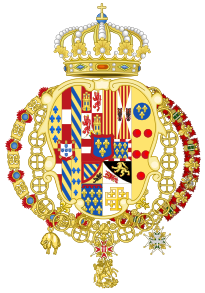
Commonality of wrecking a ship
"Every day some sailor's wife, the masters of some merchant, and the merchant have just our theme of woe. But for the miracle-I mean our preservation-few in millions can speak like us." -Gonzalo
This quote suggests to me that shipwreck, and death and loss resulting from shipwreck, was very common in Shakespeare's day. In a brief history of Bermuda, there are four historic shipwrecks documented from 1500-1699. Which means there were many more that were not written about, obvious from the map here. So it seems like the characters of The Tempest were somewhat justified in thinking that anyone not with them must have perished. But there does seem to be some other reason why many of them gave up hope so quickly.
Let's all assume everyone's dead
Ferdinand:
"The ditty doth remember my drowned father."
Alonso:
"My son is lost."
Sebastian:
"Milan and Naples have more widows in them of this business' making than we bring men to comfort them."
Antonio:
"'Tis as impossible that he's undrowned as he that sleeps here swims"
Trinculo:
"I should know that voice. It should be-but he is drowned, and these are devils."
What do we stand to gain?
Ferdinand:
"I am the best (highest ranking) of them that speak this speech (Italian)."
Ferdinand assumes the king, his father, is dead. And therefore assumes that he is now king.
Gonzalo:
"Had I plantation of this isle... and were the king on 't... I would with such perfection govern, sir, to excel the Golden Age."
Antonio (to Sebastian):
"My strong imagination sees a crown dropping upon thy head."
Sebastian (to Antonio):
"As thou got'st Milan, I'll come by Naples. Draw thy sword. One stroke shall free the from the tribute which thou payest, and I the King shall love thee."
If the king, his son, and any witnesses are dead, Sebastian becomes king and Antonio gains his love and freedom from tribute.
Stephano:
"Trinculo, the King and all our company else being drowned, we will inherit here."
This quote pretty much sums up all the others. Stephano, a butler, believes that everyone higher ranking than him is dead, and plans on inheriting what would otherwise go to men above him.
 |
| The coat of the King of Naples. (What all these men were after) |
Can't get any higher than the top
It's interesting to note that, though he believes his son to be dead at first, the king, Alonso, eventually finds hope and goes out to "search for [his] poor son." He is the only character who doesn't have anything to gain from the death of another. Since Alonso is already king, no one else's death would be beneficial to him, so he hopes his son lives. All the other characters have something to gain from the death of others, and so give up hope much more quickly. Sebastian and Antonio even go so far as to try and kill the King and Gonzalo so that they can be in higher positions of power when they return home. I'm sensing some Macbeth parallels here...
If I only had a brain.. or a conscience.
The case of Antonio and Sebastian stands out from the others. While all the other ambitions of characters rely on fortune, or misfortune, granting them the death of a superior, Antonio and Sebastian's ambitions must be taken by force. It is easy to justify taking power when the men before you were killed by nature, but it should not be so easy to justify killing for gain. Shakespeare's characters, however, seem to be burdened very little by their consciences. When speaking of murder Sebastian asks, "But for your conscience?" To which Antonio basically replies, 'I haven't got one. Nothing bothers me.' His justifications for the murder of the king are reminiscent of Berowne of Love's Labour's Lost justifying his pursuit of women. If they can put enough words together, then they can justify their actions to themselves. Sebastian's conscience seems to be won over, as he replies, "Thy case, dear friend, shall be my precedent." So these two men, who seemed so lighthearted and upright, justify murder and treason in less than five minutes.
Is Shakespeare's comment here that ambition is more powerful than moral conscience? That man will kill to get gain? And that those who don't bring themselves to murder are just as ready to accept the death of another if it benefits them? If so, who's death do you stand to gain from? Ever thought about it?

Erik | October 19, 2011 at 8:53 PM
Wow, that is a loaded question. Maybe we'll get some serious confessions here. I certainly think that is what he is trying to say, especially because it seems to be prevalent in literature or in stories. Have you ever seen Stardust? I confess, I really enjoyed it... but what you said reminds me of the part where all of the brothers actively seek to kill one another (gruesomely). I definitely think that it is a sad part of human nature that Shakespeare wanted to expose.
Martina S. | October 20, 2011 at 11:14 PM
I haven't seen Stardust.. But I wanted to add to this post:
I've been studying for a Pearl of Great Price test and we were talking about secret combinations. The essence of it is that they kill for power and gain. Seems like whats going on here to me..